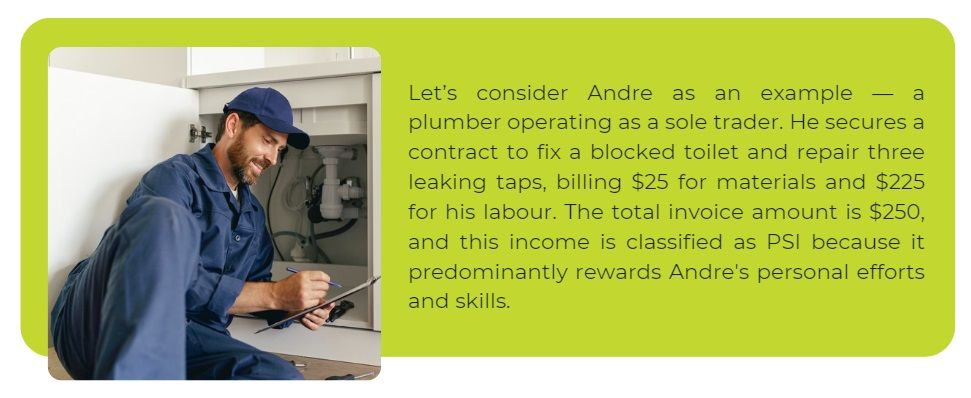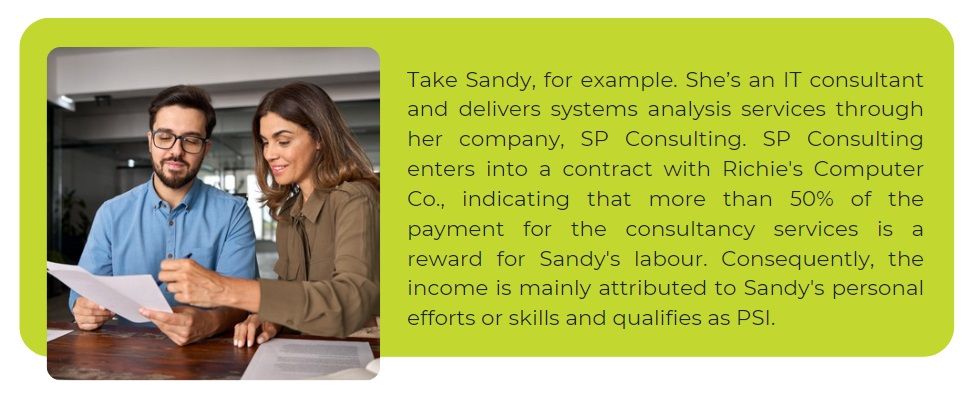PSI Deductions: What You Can and Cannot Claim
PSI deductions
Personal services income (PSI) can be a complex topic to grasp, but it's crucial for individuals and businesses to understand so they can navigate the tax landscape effectively. Let’s demystify PSI by breaking down its definition, exploring who can earn it, and providing real-life examples.
What is personal services income (PSI)?
PSI, or Personal Services Income, is income derived primarily (more than 50%) from your individual skills or efforts. This means that if the income you receive from a contract is predominantly a result of your expertise, labour, or skills, rather than assets, the sale of goods, or a business structure, it is classified as PSI.
To determine if your income qualifies as PSI, it's essential to evaluate each contract separately. Consider the terms and conditions of the contract, invoices, and written agreements detailing the work arrangement. These documents can help you determine the percentage of income attributed to:
- Your labour, skills, knowledge, expertise, or efforts.
- Other factors, such as materials supplied or tools and equipment used.
If 50% or less of your income from a contract is attributed to your personal efforts or skills, then none of the income from that contract is considered PSI.
Who can earn PSI?
PSI can be earned across various industries, trades, and professions. Common examples include freelance workers, financial professionals, information technology consultants, engineers, construction workers, and medical practitioners. Individuals can earn PSI in two ways:
1. Directly as a sole trader
If you provide services as an individual without any intermediary entity, such as a company, partnership, or trust, your income from personal services is PSI.

2. Indirectly through another entity
Some individuals provide services through an intermediary entity, like a company or partnership. In such cases, the entity is referred to as a 'personal services entity' (PSE).

Deductions you can claim against PSI
You can claim deductions against your PSI if an expense occurred earning this income. For example:
- The cost of gaining work, such as advertising, tenders, and quotes.
- Registration and licensing fees.
- Account-keeping fees, including bank fees.
- Some insurance costs, including public liability and professional indemnity insurance fees
- Salary or wages and super contributions for a “removed” employee (e.g. not an associate).
- Reasonable amounts paid to an associate for principal work.
- A portion of home office expenses, such as heating, lighting, phone and internet.
To fully understand what you can claim, you (if you're a sole trader), or the entity you're earning PSI through, need to work out if you’re conducting a personal services business (PSB) by using the PSB tests.
PSI and your tax
When completing your tax return, you need to report your PSI even if you’re a PSB and the PSI rules don’t apply to you. How you report your PSI will depend on whether you operate as a sole trader, company, partnership, or trust. In each case, there are specific labels on your tax return that you need to complete.
Consult a PSI expert
We know PSI and the associated deductions can be confusing. We help countless clients understand their PSI requirements every year — we can help you as well. If you have any questions or need advice about PSI, please don't hesitate to contact us.
Need help with your accounting?








